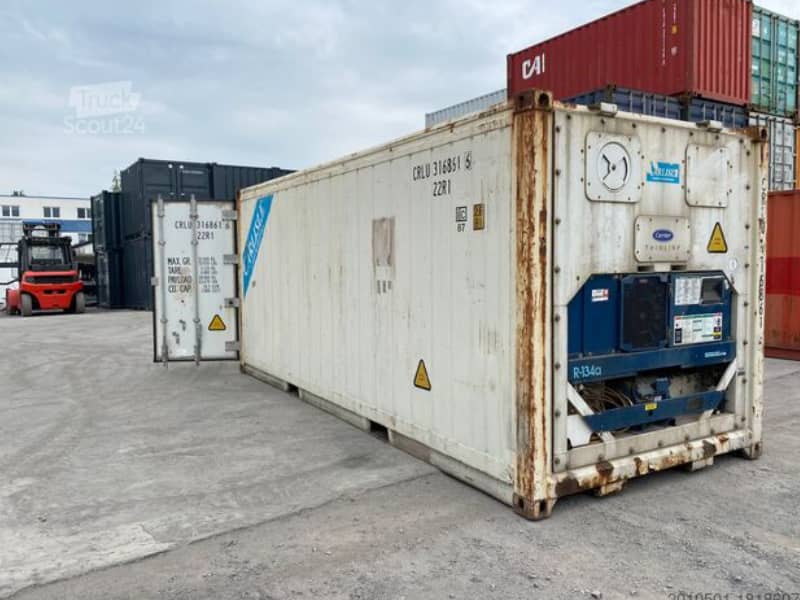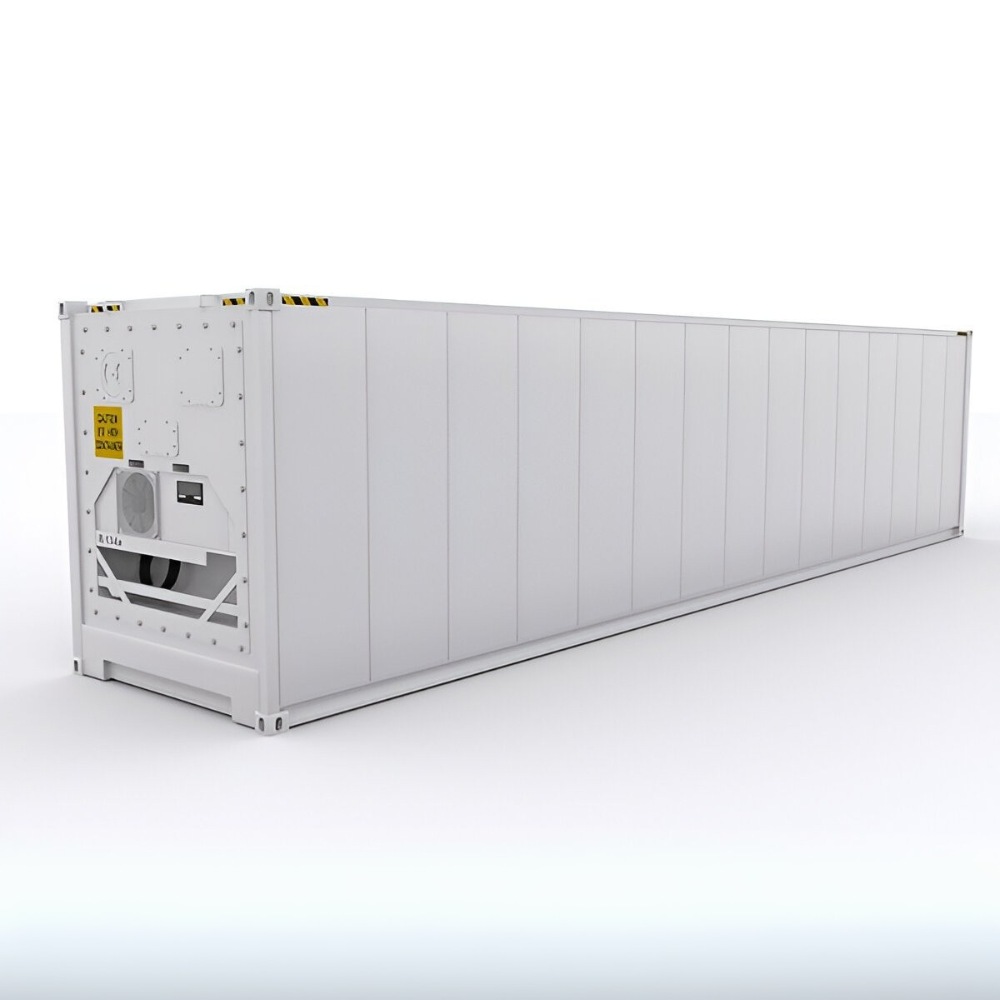All Concerning Freezer Containers: Essential Insights for Your Storage Space Needs
Cold storage space containers play a crucial role in the conservation of perishable items. They can be found in different types, including refrigerated and shielded devices, each created for specific storage needs. Comprehending the advantages and essential functions of these containers is necessary for organizations intending to optimize their procedures. As the need for reliable storage services grows, exploring the different choices available can lead to informed decisions that affect both productivity and sustainability. What variables should one consider when choosing the best container?
Sorts Of Cold Store Containers
Freezer containers can be found in different types, each made to satisfy certain temperature level control demands. Among one of the most common types are cooled containers, which maintain temperatures between 0 ° C to 10 ° C, making them ideal for disposable goods like fruits, veggies, and milk items. Another type is the deep fridge freezer container, which runs at temperatures below -18 ° C, ideal for lasting storage of icy products such as meats and seafood.
Insulated containers supply temperature stability without active cooling, making them valuable for short-term transport of temperature-sensitive items. Additionally, there are portable cold store devices, which supply flexibility in locations and are usually utilized in events or seasonal procedures. Ultimately, blast refrigerators rapidly minimize the temperature of warm foods, ensuring safety and security and high quality. Each type offers a distinct function in different markets, from food solution to drugs, emphasizing the value of picking the best container for particular storage space requirements.

Benefits of Making Use Of Cold Storage Solutions

Furthermore, cold store options prolong the rack life of things, reducing waste and increasing success for companies. By efficiently managing supply with proper temperature control, business can optimize their supply chains and improve functional efficiency.
In addition, freezer facilities permit flexible storage options, suiting various volume requirements and seasonal variations popular (used 40ft refrigerated shipping containers). This flexibility helps businesses react rapidly to market adjustments
Lastly, using freezer remedies can ensure conformity with health and wellness and safety and security guidelines, guarding both customers and companies. On the whole, the strategic use of cold storage space enhances product monitoring while promoting sustainability and financial stability.
Trick Functions to Seek in Freezer Containers
When choosing cold storage containers, several crucial attributes merit mindful consideration to safeguard peak performance and integrity. Initially, temperature level control capabilities are vital; containers ought to preserve regular temperatures ideal for details products. Insulation high quality also plays a substantial function, as exceptional insulation reduces power consumption and enhances temperature level security.
Next off, simplicity of gain access to and loading is essential; containers need to use easy to use layouts for reliable handling and organization. Sturdiness is another important element; weather-resistant products assure longevity and secure contents against ecological elements.
Furthermore, flexibility features, such as integrated wheels or raising points, assist in transport, while customizable layouts enable tailored storage solutions.
Checking systems, consisting of temperature alarm systems and remote tracking, supply real-time updates, making particular that conditions stay perfect. By concentrating on these functions, individuals can choose cool storage space containers that meet their functional demands effectively.
Selecting the Right Freezer Container for Your Needs
Selecting the best cold store container needs a thoughtful analysis of functional needs and details requirements. Factors such as the kind of items being kept, temperature sensitivity, and volume ought to be prioritized. Perishable food items may require containers with rigorous temperature level controls, while pharmaceuticals might need precise conditions to keep efficiency.
Additionally, possible individuals should think about the container's dimension and movement. A larger unit may be needed for bulk storage, while smaller, mobile options might be ideal for short-lived or on-site needs. Insulation top quality and power performance are additionally vital, as these will certainly affect operational expenses and temperature stability.
Last but not least, conformity with industry guidelines and standards is necessary, particularly in industries like food and health care. By very carefully assessing these facets, customers can select a chilly storage space container that effectively satisfies their one-of-a-kind needs and guarantees optimum storage space conditions.
Ideal Practices for Keeping Freezer Issues
Keeping ideal cold store conditions is necessary for maintaining the quality and safety of temperature-sensitive products. Consistently keeping track of temperature and humidity degrees is crucial; making use of reputable digital thermometers and hygrometers can give exact analyses. Correct insulation of chilly storage containers assists lessen temperature level variations and energy loss.
Carrying out a first-in, first-out (FIFO) system ensures that older inventory is used before newer stock, lowering waste (used 40ft refrigerated shipping containers). Additionally, keeping an organized layout within the storage room permits better air movement and minimizes the danger of cross-contamination
Regular upkeep examine tools, such as compressors and seals, are very important to avoid breakdowns. Staff training on best methods for loading and discharging items aids maintain temperature honesty. Maintaining doors closed as much as feasible limits warm exchange, assuring that the cold storage setting continues to be secure and reliable in protecting beneficial products.
Expense Considerations for Freezer Solutions
When evaluating freezer options, it is important to take right into account the initial financial investment prices alongside recurring functional expenditures. A comprehensive break down of these costs can expose substantial lasting cost savings possibility for organizations. Recognizing these economic aspects helps stakeholders make educated decisions concerning their freezer requirements.

Preliminary Financial Investment Costs
The financial landscape of freezer containers offers numerous initial financial investment prices that organizations must consider. These expenses generally consist of the purchase or rental price of the containers, which can vary based upon insulation, dimension, and kind quality. Furthermore, costs connected to retrofitting existing structures to suit cold store has to be factored in, particularly if specialized equipment is called for. Setup costs, including electrical work and refrigeration systems, additionally contribute to the total preliminary investment. Organizations should not neglect transport expenses for supplying containers to their preferred location. Prospective personalization options, such as shelving or temperature tracking systems, can additionally influence the initial economic investment. Cautious budgeting for these aspects is vital for successful freezer execution.
Functional Expenses Failure
Functional costs for cold store options include several important price considerations that companies must browse. Trick elements include power prices, which can be significant because of the demand to preserve low temperatures. Maintenance expenditures are additionally substantial, as routine servicing is vital to guarantee equipment runs successfully and remains compliant with health and safety criteria. In addition, labor prices may arise from the demand for specialized personnel to keep track of the storage and manage setting. Insurance costs are one more consideration, as business have to protect their investments against possible losses. Lastly, any prospective governing conformity costs must be factored in, as businesses may require to purchase systems that stick to food safety and security and environmental guidelines. Comprehending these costs is vital for efficient budgeting.
Long-Term Cost Savings Prospective
Buying cold store services supplies substantial lasting financial savings possibility, changing initial expenditures into economic efficiency with time. By minimizing spoilage and waste, companies can improve their profit margins substantially. Advanced insulation and energy-efficient systems lower utility expenses, which build up over the life-span of the tools. Cool storage containers typically require less regular upkeep contrasted to traditional refrigeration techniques, leading to lower fixing expenses. The capacity to shop products for prolonged durations without compromising quality permits organizations to capitalize on market changes, enhancing earnings. In addition, the scalability of cold store solutions makes it possible for companies to adapt to altering demands without sustaining too much costs. Generally, these factors add to a compelling case for cold store as a cost-efficient financial investment approach.
Regularly Asked Inquiries
How Much Time Can Food Be Saved in Cold Storage Containers?
The period food can be kept in freezer containers varies by kind. Normally, perishable things last from days to weeks, while icy foods can remain risk-free for months, depending on proper temperature and storage conditions.
Are Cold Store Containers Energy-Efficient?
The energy performance of chilly storage space containers differs based upon design and insulation high quality. Modern devices frequently utilize advanced modern technology to decrease energy usage, eventually contributing to lowered operational expenses and ecological impact in long-lasting use.
Can Freezer Containers Be Customized for Details Demands?
Cold store containers can without a doubt be tailored to fulfill particular requirements. Alterations may include temperature level controls, size changes, and additional features, enabling users to tailor solutions successfully for numerous storage demands and operational choices.
What Are the Typical Sizes of Freezer Containers?
Cold storage space containers commonly can be found in conventional sizes such as 10, 20, and get more info 40 feet. These measurements accommodate numerous storage space requirements, ensuring versatility for services needing temperature-controlled settings for perishable items or delicate materials.
Do Cold Storage Containers Require Special Permits for Use?
Freezer containers usually call for special permits for use, relying on regional policies and intended applications. Authorities might mandate authorizations to assure safety standards, ecological conformity, and proper operational practices are kept during their utilization.
Cold storage space containers come in numerous types, each developed to fulfill particular temperature control needs. Additionally, cold storage centers allow for versatile storage choices, suiting different volume demands and seasonal changes in need. Picking the appropriate cold storage space container requires a thoughtful analysis of certain needs and operational needs. The monetary landscape of chilly storage containers presents different preliminary financial investment prices that services must consider. Cold storage space containers can indeed be customized to meet details needs.